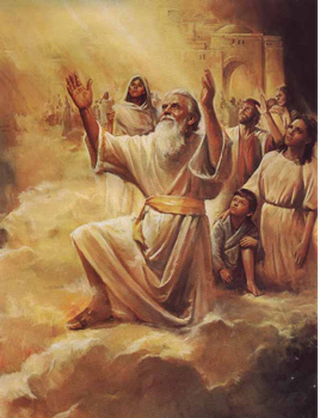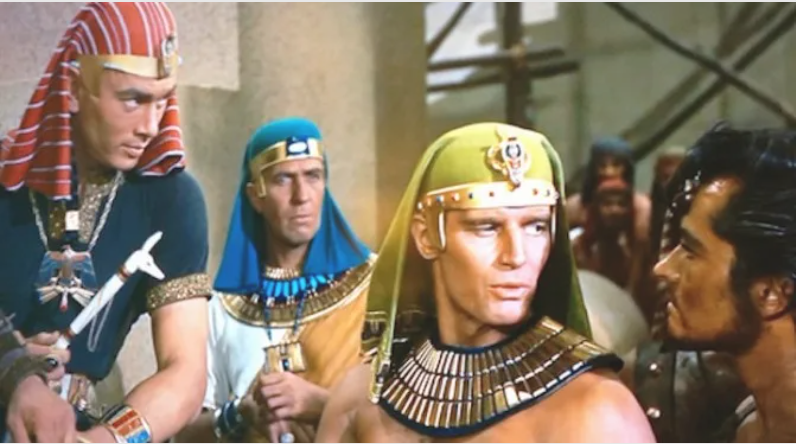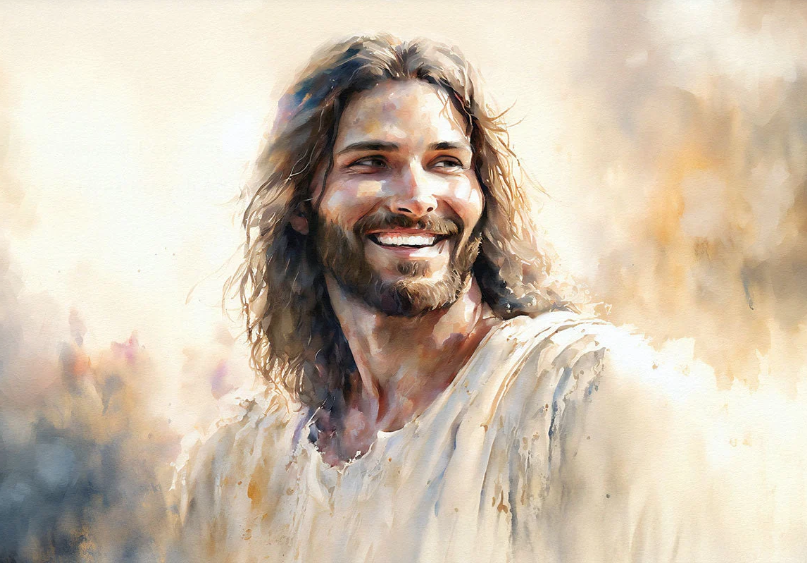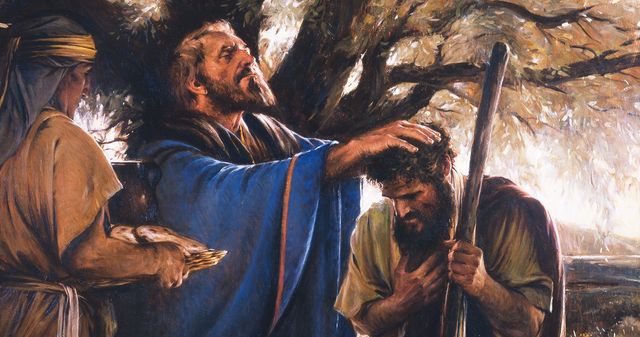To accompany your Come Follow Me study for November 6-12
In addition to reading the indicated chapters, you may wish to:
Read the applicable portion of the New Testament Institute Student Manual at :
See the following videos:
If you would like a Kahoot game related to this material which you could use for personal study or use with your family or your class, click here: https://create.kahoot.it/share/hebrews-7-13/93ad10b1-200d-40e1-a1f8-35b8b3f9fc98 . (To use it with a group, after clicking on this link, you will need to log into Kahoot, creating a free account if you have not done so previously, then click on the blue “Start” button.)
Points to Ponder in Hebrews 7-13
As you did last week, for each of the following passages from Hebrews 7-13, briefly indicate what you believe to be the correct interpretation of the passage and/or one or more practical applications of it. In other words: (1) What is the passage really saying, in simple English? And/or (2), what good do we get from the passage once we understand it? Does it increase our faith? Does it motivate us to live better? Does it clarify an important doctrinal point? Does it help in teaching the gospel to others?
- 7:3
- 7:11
- 7:21‑25
- 8:8‑11
- 9:13‑17
- 10:1‑10: Do you find these verses clearer in a translation other than the King James? If so, which one do you prefer?
- 10:24‑25
- 10:26-27
- 10:31
- 11:1
- 11:4
- 11:6
- 11:10-16
- 11:24-26
- 11:32-40
- 12:1
- 12:2
- 12:6
- 12:9
- 12:22-23
- 13:2
- 13:6
- 13:8
- 13:7, 17
Possible Answers to Points to Ponder in Hebrews 7-13
- 7:3
As the Joseph Smith Translation makes clear, it was not Melchizedek but the priesthood which bears his name which is “without father, without mother, without descent, having neither beginning of days, nor end of life.” Unlike the Aaronic Priesthood, which anciently was held only by those who were literally of the tribe of Levi, the Melchizedek Priesthood was not dependent on lineage but could be conferred upon anyone worthy thereof.
- 7:11
This may be the clearest Biblical passage to indicate that there are two priesthoods, the Aaronic (or Levitical) and the Melchizedek.
- 7:21‑25
Ambiguous as it may be, this is probably the clearest Biblical passage about the fact that there was no oath connected with the Aaronic Priesthood, which priesthood was applicable only to this life. The Melchizedek Priesthood, on the other hand, included an oath and covenant, and its possessors, like Jesus Christ Himself, would continue to possess it forever. D&C 84 is much clearer about the details of the oath and covenant of the Melchizedek Priesthood. See also Melchizedek Priesthood (churchofjesuschrist.org), which says, “When a man receives the Melchizedek Priesthood, he enters into the oath and covenant of the priesthood. He covenants to be faithful, magnify his calling, “give diligent heed to the words of eternal life,” and “live by every word that proceedeth forth from the mouth of God.” Those who keep this covenant will be sanctified by the Spirit and receive “all that [the] Father hath.” (See Doctrine and Covenants 84:33–44.)”
- 8:8‑11
Hebrews here quotes Jeremiah 31:31-34 concerning the new covenant the Lord would make in the latter days with the house of Israel. It is partially being fulfilled even now, as through the Come Follow Me program, seminary and institute, general conference telecasts, individual scripture study, and personal revelation the Lord’s law is more in the hearts and minds of His people than ever before. We still await the day, of course, when it can be truthfully said that “they shall teach no more every man his neighbour, and every man his brother, saying, Know the Lord: for they shall all know me, from the least of them unto the greatest of them, sayeth the Lord.”
- 9:13‑17
Paul’s reference here to the “new testament” is the source of the name for the entire collection of books from Matthew through Revelation. He speaks of this testament as a “will,” which only becomes valid upon the death of the one who prepared it. Christ’s death, thus, makes us all legitimate heirs of the blessings He promised. Interestingly, Joseph Smith changed every reference to a “testament” in this chapter to “covenant” in his revision of the Bible. The translators of the New International Version also used the word “covenant” rather than “testament.” Rather than function as a regular will, which imposes no requirements on the recipients, Christ’s arrangement with us is a two-way street, where we must comply with our part of the bargain in order to receive the full blessings He has reserved for us.
- 10:1‑10: Do you find these verses clearer in a translation other than the King James? If so, which one do you prefer?
Your choice. I like the New International Version but may prefer even more the New Living Translation, which says:
1 The old system under the law of Moses was only a shadow, a dim preview of the good things to come, not the good things themselves. The sacrifices under that system were repeated again and again, year after year, but they were never able to provide perfect cleansing for those who came to worship. 2 If they could have provided perfect cleansing, the sacrifices would have stopped, for the worshipers would have been purified once for all time, and their feelings of guilt would have disappeared.
3 But instead, those sacrifices actually reminded them of their sins year after year. 4 For it is not possible for the blood of bulls and goats to take away sins. 5 That is why, when Christ[a] came into the world, he said to God,
“You did not want animal sacrifices or sin offerings.
But you have given me a body to offer.
6 You were not pleased with burnt offerings
or other offerings for sin.
7 Then I said, ‘Look, I have come to do your will, O God—
as is written about me in the Scriptures.’”
8 First, Christ said, “You did not want animal sacrifices or sin offerings or burnt offerings or other offerings for sin, nor were you pleased with them” (though they are required by the law of Moses). 9 Then he said, “Look, I have come to do your will.” He cancels the first covenant in order to put the second into effect. 10 For God’s will was for us to be made holy by the sacrifice of the body of Jesus Christ, once for all time.
- 10:24-25
We may initially be surprised that Paul would counsel us to “provoke” each other, even unto love and good works, since “provoke” has a negative connotation in today’s English—something like “nag” or “annoy.” But it was not so in 1611, when the King James Version was produced. Even in the 1828 version of Webster’s Dictionary, one listed meaning of the word was, “To move; to incite; to stir up; to induce by motives.” And the dictionary even cited Hebrews 10:24 as a legitimate use of the word “provoke” with that meaning. Verse 25 goes on to encourage us to assemble together so that we can exhort (or “provoke”) each other in the good sense of the word.
- 10:26-27
Paul emphasizes that if we sin “wilfully” after having received a knowledge of the truth, repentance is extremely difficult, if not impossible. It is one thing to slip into sins of either commission or omission when we are really trying to improve. Those are the sins that are easily forgiven, as we take the sacrament each week and promise to try to do better. But if we sin intentionally, and especially in a spirit of rebellion, it is very hard to feel truly sorry and qualify for forgiveness—not because the Lord wouldn’t be willing, but because we are not.
- 10:31
“It is a fearful thing to fall into the hands of the living God.” God is love and is abundantly patient with those who love Him and who are trying to follow Him. But to those who oppose Him, He is as capable of dishing out punishments (primarily by withholding blessings) as He is of showing down blessings upon the faithful. This passage reminds us of the phrase, “the great and dreadful day of the Lord.” It will be great for the righteous and dreadful for the wicked.
- 11:1
Joseph Smith changed this from “faith is the substance of things hoped for” to read, “faith is the assurance of things hoped for.” It is interesting that the Revised Standard Version and many other modern translations of the New Testament do the same thing.
It is worth emphasizing Paul’s coupling of faith with hope, as does Alma in Alma 32:21 and again in Alma 32:27, where he teaches that faith begins with a desire to believe. Faith is unlikely ever to take root in one who hopes the gospel is not true. But if one honestly doesn’t yet believe but fervently hopes that such a glorious message could be true, he is well on the way to becoming convinced that it is.
- 11:4-5
In these verses Paul notes that both Abel and Enoch not only had faith in God but had a witness from God that their lives were acceptable in His sight. Joseph Smith explained the importance of this in Lecture 6 of the Lectures on Faith, where he wrote:
“For a man to lay down his all, his character and reputation, his honor, and applause, his good name among men, his houses, his lands, his brothers and sisters, his wife and children, and even his own life also — counting all things but filth and dross for the excellency of the knowledge of Jesus Christ — requires more than mere belief or supposition that he is doing the will of God ; but actual knowledge, realizing that, when these sufferings are ended, he will enter into eternal rest, and be a partaker of the glory of God. For unless a person does know that he is walking according to the will of God, it would be offering an insult to the dignity of the Creator were he to say that he would be a partaker of his glory when he should be done with the things of this life. But when he has this knowledge, and most assuredly knows that he is doing the will of God, his confidence can be equally strong that he will be a partaker of the glory of God.”
- 11:6
This verse adds a very important element to what some people think faith is. It is one thing to believe or even know that God exists. It is quite another to believe that He is good and is “a rewarder of them that diligently seek him.” Without that confidence, we would have no motivation to try to follow Him.
- 11:10-16
The “city” Abraham looked for was presumably the city of Enoch, which he knew had been translated because of its righteousness. In fact, Melchizedek, a contemporary of Abraham, led his people to become so righteous that they evidently received the same blessing. (JST, Genesis 14:34.) Abraham was destined instead to remain on earth during mortality, to become the father of Isaac, who in turn would have Jacob, from whom sprang the entire house of Israel. But Abraham and others of like faith, even though they didn’t receive the same blessing in mortality as did Enoch’s and Melchizedek’s people, saw such blessings lay ahead for them in eternity, “having seen them afar off, and were persuaded of them, and embraced them, and confessed that they were strangers and pilgrims on the earth.” So, too, can we have that hope, if we never become totally comfortable with earthly society.

- 11:24-26
Paul evidently had sources concerning Moses’ life that we do not, as these details are not in our Old Testament.

- 11:32-40
Paul here offers an impressive summary of the faith of many ancients who, like Ether, dwelt in a cave, like Melchizedek quenched the violence of fire, like Stephen were stoned, or like Isaiah were sawn asunder.
Joseph Smith did a couple of interesting but quite unrelated things with verse 40. In D&C 128 he uses it to emphasize the importance of vicarious work for our departed loved ones, who without us “should not be made perfect.” But in the Joseph Smith translation, he changed the verse to read, “God having provided some better things for them through their sufferings, for without sufferings they could not be made perfect.” The two ideas are not mutually exclusive, of course. Certainly, our perfection, as well as that of our departed relatives, depends on our energetically attending to vicarious ordinances on our behalf. But it is also true that we learn things through our sufferings that we could never learn if life were one uninterrupted journey of pure tranquility. That’s worth remembering the next time we wonder if God has abandoned us because things aren’t going just how we wish they were.
- 12:1
Paul reminds us that faith is not blind faith but is the result of our trust in a “great cloud of witnesses.”
- 12:2
Jesus’ suffering for us in Gethsemane and on the cross was not motivated only by duty but by a realization that it was the way for Him eventually to experience a joy as great as had been His suffering. It is a great reminder to us of the joy that awaits us as we successfully pass through the trials of life.

- 12:6
An important reminder that the Lord’s chastening, when we need it, is a mark of His love for us, not a punishment which He gleefully inflicts just to get even! It is interesting to note that the verse is in the form of a simple chiasmus, an ancient poetical form common to Hebrew scriptures as well as the Book of Mormon, though it went unnoticed in the Book of Mormon until 1972.
- 12:9
A great passage to teach that God is not simply our Creator but is literally the Father of our spirits, in which form we lived with Him prior to our birth through mortal parents into this life.
- 12:22-23
This otherwise somewhat puzzling passage seems to have been clarified by Joseph Smith to mean that the Hebrew saints had reached a point of being able to enjoy great spiritual gifts and an association, at least figuratively, with angelic beings and saints from past dispensations. In his poetical version of D&C 76 (either written by or at least evidently approved by him), Joseph Smith paraphrased D&C 76:66-68 as follows, concerning those who qualify for the celestial kingdom hereafter:
“These are they that arise in their bodies of flesh,
When the trump of the first resurrection shall sound;
These are they that come up to Mount Zion, in life,
Where the blessings and gifts of the spirit abound.
“These are they that have come to the heavenly place;
To the numberless courses of angels above:
To the city of God; e’en the holiest of all,
And the home of the blessed, the fountain of love:
“To the church of old Enoch, and of the first born:
And gen’ral assembly of ancient renown’d.
Whose names are all kept in the archives of heav’n,
As chosen and faithful, and fit to be crown’d.”
This idea is consistent with Joseph Smith’s conclusion to D&C 76, where after speaking of the great vision he and Sidney Rigdon had seen, he wrote, in verses 114-118:
“But great and marvelous are the works of the Lord, and the mysteries of his kingdom which he showed unto us, which surpass all understanding in glory, and in might, and in dominion;
“Which he commanded us we should not write while we were yet in the Spirit, and are not lawful for man to utter;
“Neither is man capable to make them known, for they are only to be seen and understood by the power of the Holy Spirit, which God bestows on those who love him, and purify themselves before him;
“To whom he grants this privilege of seeing and knowing for themselves;
“That through the power and manifestation of the Spirit, while in the flesh, they may be able to bear his presence in the world of glory.”
In other words, there is nothing magical about dying that makes us better prepared to endure the presence of God. If we are not qualified to have His Spirit with is here and now, how could we hope to associate with Him hereafter?
- 13:2
This fascinating passage seems to suggest that angels from heaven could well show up unannounced for dinner and that we should warmly welcome them. It is true that Jesus sat down to eat unrecognized with two men on the road to Emmaus following His resurrection. The scriptures seem silent, however, as to any other known occasion on which something similar occurred. The holy men who visited Abraham in Genesis 18 were understood by Joseph Smith to be mortals.
The more likely application of this passage would seem to be that suggested by Jesus in His Parable of the Sheep and the Goats in Matthew 25—that inasmuch as we do it unto the least among us, Jesus counts it as though we did it to Him. So, we may well want to feed a hungry stranger. But it is not necessary to assume he is a visitor from the unseen world.
- 13:6
A great statement of faith: “The Lord is my helper, and I will not fear what man shall do unto me.”
- 13:8
A passage with possible missionary application. For example, if Jesus is the same yesterday, today, and forever, it stands to reason that if He once directed His church through living prophets and apostles, He would do so today. If He rewarded faith and repentance anciently, we can expect the same now.
Obviously, Paul’s statement cannot be taken completely literally without limitations, as in the premortal life, Jesus was an unembodied spirit, as were we all. He now has a resurrected body of flesh and bones, and always will. The scriptures tell us that He didn’t receive the fulness at first but grew from grace to grace. But otherwise, as our Creator, Redeemer, and Lord, He is the model of consistency.
- 13:7, 17
Though Paul elsewhere tells us to be subject to civil authorities, these two passages regarding “them which have the rule over you” seem to apply to our religious leaders, who, Paul tells us, “have spoken unto you the word of God” and who “watch for your souls.” We don’t typically speak of them “ruling” over us. Paul today would probably want to say something like, “them which preside over you.”
